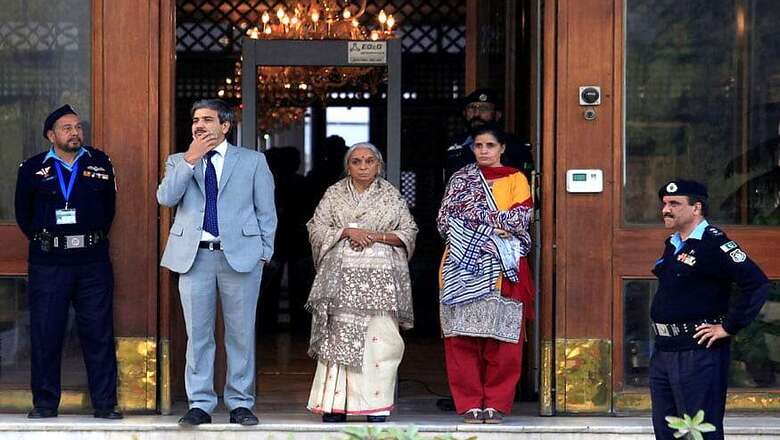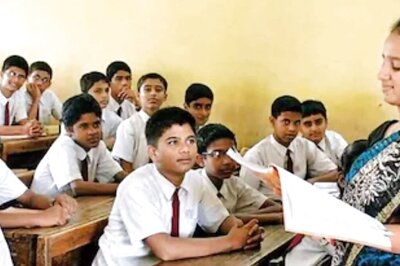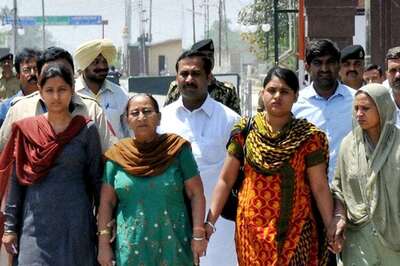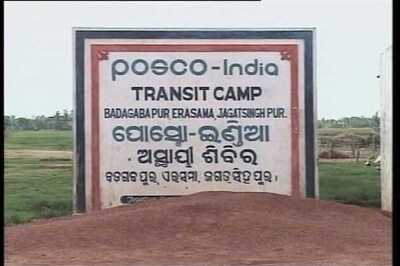
views
After the recent meeting between Kulbushan Jadhav and his family members, Pakistan confiscated the shoes of Jadhav’s wife, alleging that they contained a surveillance device of some kind. India promptly issued a stern warning against any “mischievous” intents.
Underlying this and other bizarre allegations that have been levelled over the past few days is Pakistan’s view that, despite the “humanitarian” nature of the meeting, a “comprehensive security check” was essential because "Jadhav is a serving Indian naval officer and a convicted Indian terrorist and spy".
India, for its part, made it clear that the meeting was conducted in a manner that bolstered “a false and unsubstantiated narrative” of Jadhav’s alleged activities, and therefore “lacked any credibility”.
Setting aside the allegations against Jadhav for a moment, there is little doubt that the meeting provided crucial information about Jadhav’s condition, who has been languishing in Pakistan’s jails without any contact with the outside world. It would thus have come as a welcome relief to Jadhav, his family, as well as India, given that it is pursuing Jadhav’s case at the International Court of Justice (ICJ).
That case, filed by India on May 8, 2017, alleges that Pakistan violated its obligations under the 1963 Vienna Convention on Consular Relations (VCCR) by refusing to allow consular access to Jadhav, following his arrest and trial in Pakistan.
Soon after India’s complaint, on May 18, the ICJ ordered Pakistan to ensure that Jadhav is not executed pending the Court’s final judgment in the case. Subsequently, the two countries filed their written submissions and are currently awaiting the hearing.
Although the recent turn of events comes just as the ICJ is about to convene a hearing, they appear to be of limited significance to the legal proceedings. India’s case at the ICJ is directed against Pakistan’s failure to provide consular access to Jadhav, as guaranteed under Article 36 of the VCCR. Consular access concerns communication and meetings between a foreign national and the consular officers of the home country.
Even though the Deputy High Commissioner of India was allowed to witness from a distance the meeting between Jadhav and his family members, as Pakistan itself now acknowledges, a family visit does not amount to providing consular access. Moreover, even if Pakistan were now to allow contact between Jadhav and Indian diplomats, this cannot undo the fact that Jadhav was arrested, tried, and convicted without regard to his right to consular access guaranteed under international law.
The damage, in other words, has already been done, given that an important purpose of consular access is to provide some level of assistance to an accused in navigating through the strange waters of the legal process in a foreign land, and not after that process has concluded and resulted in a conviction.
A major disagreement between the two countries underlying the current controversy relates to Jadhav’s alleged status as an Indian “spy”. From a legal perspective, this question becomes relevant only if it is found that international law treats spies differently from ordinary foreign nationals insofar as the right to consular access is concerned. The text of VCCR, in providing for consular access for foreign nationals in general, does not appear to draw such a distinction.
In addition to the VCCR, Pakistan may seek to rely on a bilateral agreement on consular access concluded in 2008, according to which the two countries can examine every case of arrest, detention, or sentence made on political or security grounds on its merits. Given that Jadhav’s alleged status as an Indian spy implicates security concerns, Pakistan may argue that it was acting in accordance with the 2008 agreement by not granting consular access to Jadhav.
For this argument to work, the ICJ has to be convinced that the right to consular access available to all foreign nationals under the VCCR is taken away in cases involving national security by the 2008 bilateral agreement.
The relationship between the VCCR and any future agreements is governed by Article 73(2) of the VCCR, which states that countries are not precluded from concluding subsequent international agreements “confirming or supplementing or extending or amplifying” the provisions of the VCCR.
This language can be seen as suggesting that while the VCCR permits and gives priority to later treaties that confirm, supplement, extend or amplify its provisions (that is, provide more favourable treatment to foreign nationals), countries cannot derogate from the existing provisions of the VCCR by concluding subsequent treaties that offer less favourable treatment to foreign nationals than what is already provided under the Convention.
Were the ICJ to agree with such an interpretation, the 2008 agreement could not have an “overriding” effect given that it takes away the right to consular access, which is guaranteed, without distinction, under the VCCR, in cases implicating national security.
Put differently, whether Jadhav is an Indian spy or not may be beside the point as the legal regime between the two countries does not appear to treat spies differently from ordinary nationals as far as the guarantees of consular access are concerned.
Thus, even as the recent controversy highlights a lack of trust between the two neighbouring countries, it has limited significance for India’s case at the ICJ.
In addition to the legal aspects discussed above, the ICJ derives its objectivity, in part, from the calmness and tranquillity of its seat at the Peace Palace in The Hague, which, thankfully, is quite far removed from the frenzy being witnessed in the sub-continent.
(The author is a Geneva-based public international lawyer. He previously served as the first Indian law-clerk at the International Court of Justice and a Legal Adviser at the Iran-US Claims Tribunal. The views expressed are personal.)




















Comments
0 comment